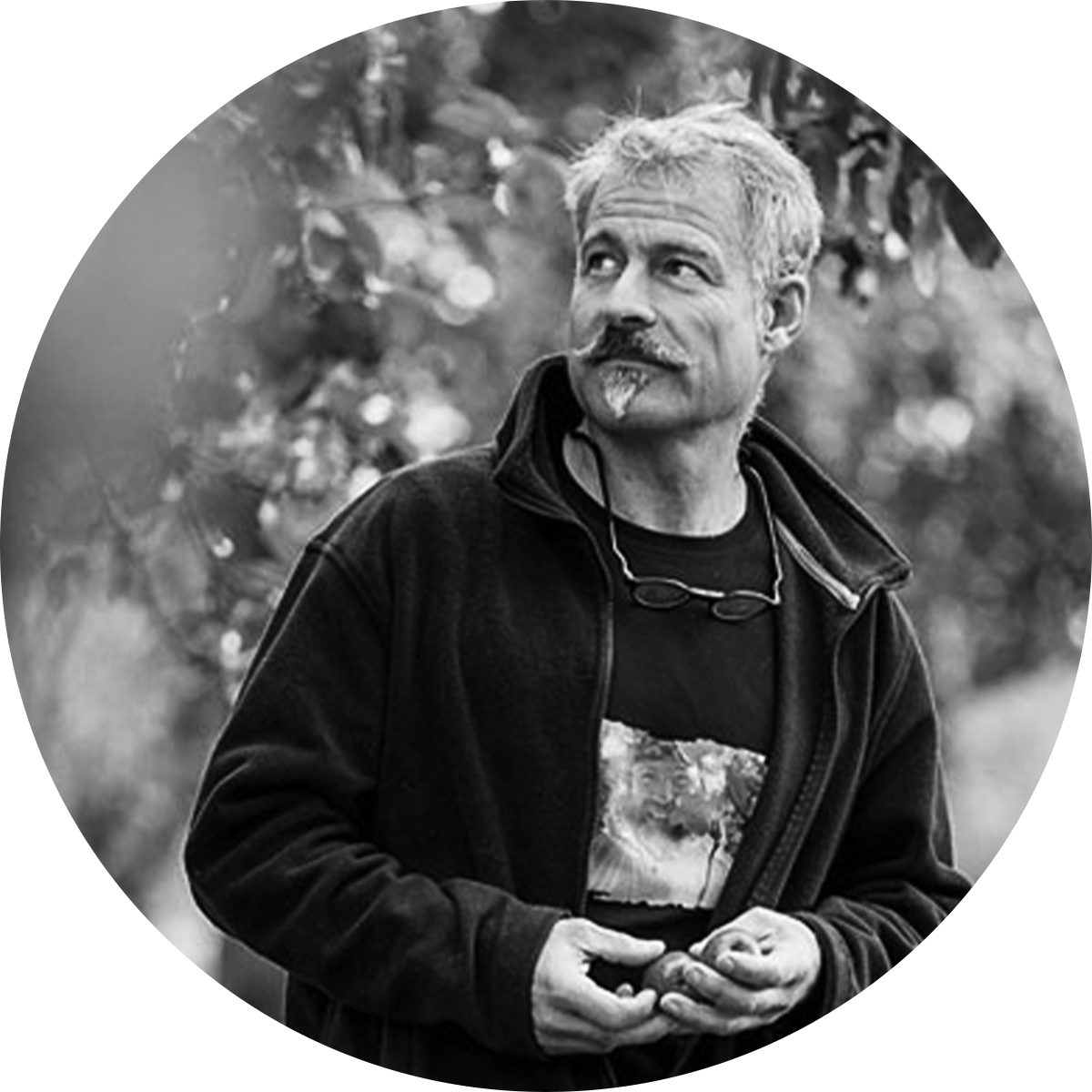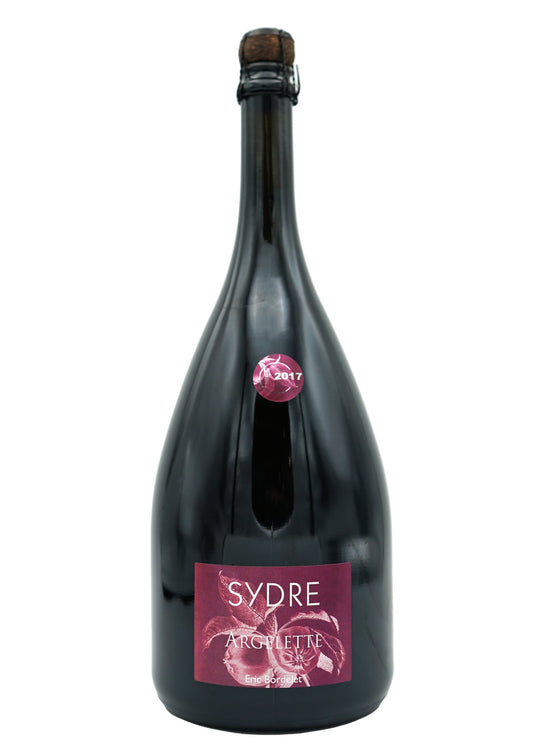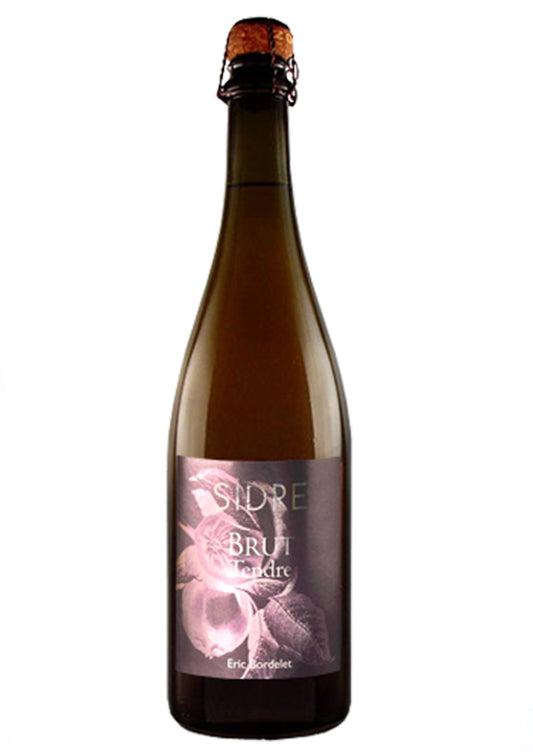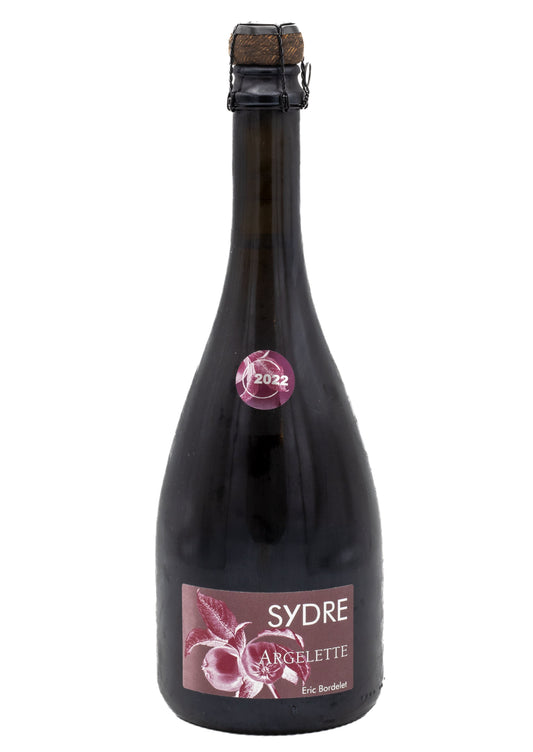DOMAINE ERIC BORDELET
ERIC BORDELET
Normandy, France
"I wanted to apply what I'd learnt about oenology to cider making"
After a long apprenticeship with some of the greatest names in the restaurant business and the world of wine, former sommelier, Eric Bordelet, took over the family business in 1992. The property consists of 23 hectares of certified organic cider apple, perry and corme orchards. Situated in southern Normandy on the Armorican Massif, extending from the Domfrontais to the edge of the Mayenne and the Orne. The property is situated on the great brioverien schists, “Grand Crus' ' sedimentary rocks from the Precambrian era.
The orchards have been certified organic since 1996. Harvested by hand, into wire baskets and then placed into paloxs. Due to the large number of varieties, fruits are selected from September through to December according to ripeness. To create the final balance, each variety of fruit is processed individually: it is assembled, coarsely ground, gently pressed and the juice is racked and settled. Ancestral fermentation in vats and then bottling takes place over several weeks, even months depending on the vintage, with more or less residual natural sugars (fructose) so no need to add any sucrose.
-
Eric Bordelet Sydre Argelette 2017 Magnum
Regular price HK$400.00Regular priceUnit price / per -
Eric Bordelet Sydre Brut Tendre
Regular price HK$120.00Regular priceUnit price / per -
Eric Bordelet Sydre Argelette 2022
Regular price From HK$170.00Regular priceUnit price / per -
Eric Bordelet Poiré Authentique
Regular price HK$150.00Regular priceUnit price / per
BACKGROUND OF NATURAL WINE IN NORMANDY
Situated in northwestern France, Normandy is celebrated for its centuries-old tradition of cider production. Lush orchards and verdant countryside make for a picturesque landscape where to find a variety of apple cultivars, including bittersweet, bittersharp, sweet, and sour apples. The region's maritime climate, with its mild temperatures and ample rainfall, provides optimal conditions for apple cultivation.
Organic, Biodynamic and Natural wine. What’s the difference?
To understand this concept and its various ramifications, it is necessary to keep something clear in mind: before the 20th century and the spreading of affordable synthetic fertilisers, all farming was organic. When the shift to the use of synthetics and pesticides happened, it became necessary to diversify traditional organic farming from the new modern farming.
ORGANIC WINE
Simply put, organic farming forbids the use of synthetic fertilisers, synthetic pesticides, herbicides, or genetically modified organisms. The basic requirements are generally specific and engage the farmers not to use any chemical fertilisers and other synthetic products in the vineyard. It does not prevent the vintner from using the conventional winemaking process after harvesting.
BIODYNAMIC WINE
Let’s take organic farming one step further: Biodynamic. The creator of this agricultural system is the Austrian philosopher Rudolf Steiner, who developed the principles of biodynamics in a series of lectures given in 1924 in Germany. Here lies the foundation of true organic wines, with a strict limit in the use of additives, stringent requirements and at the end obtaining a biodynamic certification.
NATURAL WINE
The previous definitions are usually, and rightfully, associated with it, because most natural wine is also organic and/or biodynamic. But not vice versa!
Natural wine is wine in its purest form, simply described as nothing added, nothing taken away, just grapes fermented. No manipulation whatsoever, minimal intervention both in the vineyards and in the winery. Healthy grapes, natural yeast and natural fermentation, with no filtration nor fining. Sounds easy, right? However, making natural wine is unforgiving and it requires a bigger amount of work than conventional wine. To this day, natural wine has no certification yet.









